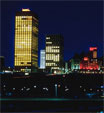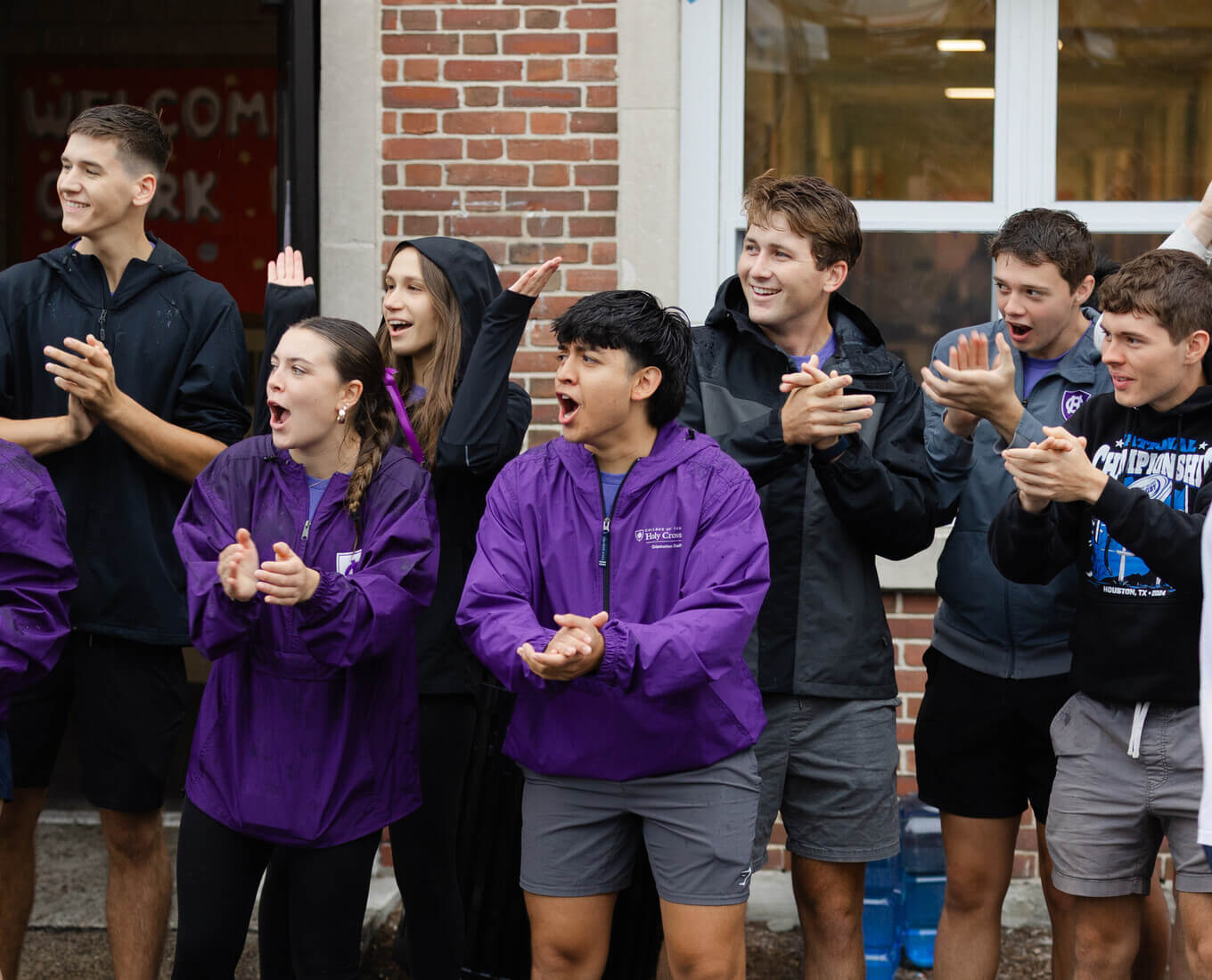 skyline
skyline
Two political science professors at Holy Cross have received an award from the Consortium on High Achievement and Success to stimulate more interest in areas related to race, ethnicity, and urban politics among students at the College.
Assistant professors Daniel Klinghard and Jeffrey Reno have received $6,000 for the project titled “A Program for Student Research on Race, Ethnicity, and Urban Affairs.” The instructors are currently selecting 10 students across academic disciplines who are interested in completing independent research and who will participate in an intensive, yearlong series of workshops on conducting research this academic year.
The Consortium on High Achievement and Success is hosted by Trinity College. Its goal is to promote the highest levels of academic achievement and leadership, as well as student satisfaction, with a focus on students of color.
Klinghard and Reno teach courses in the areas of race and urban politics. They have also been involved in mentoring students working on individual research projects through the College Honors Program, departmental honors, and the Washington Semester Program. The trouble, they say, is that they were rarely seeing students move from the concerns of these courses into independent research.
“When Timothy Austin [vice president for academic affairs and dean of the College] brought the program to the faculty’s attention, it became a catalyst for some more serious thinking about how to raise interest in the subject matter,” says Reno. “Our immediate goal is to help these students devise rigorous research projects of the highest quality, worthy of presentation at professional conferences or publication in student research journals.”
Both professors say it is very important to encourage more research in race and urban politics at Holy Cross for a number of reasons.
“First, it reflects the College’s commitment to the city in which it lives, and to the issues of justice and equality that defines so much of what the College stands for,” explains Klinghard. “Second, it complements the College’s commitment to diversity — which has to be more than what the student body looks like — and gets to what kinds of things our students are interested in thinking about. Finally, it shapes the cadre of students we send off to graduate school. The kinds of things we interest our students in now will shape what they carry with them to graduate school, if they choose to go.”
That’s important, Klinghard says, because “independent student research in the humanities and social sciences is one of the things that liberal arts colleges need to do better.”
Research techniques are not always easily taught in the liberal arts classroom, the professors contend.
“In the sciences, the reliance on research as part of a teaching method is clearer,” says Reno. “In the social sciences and humanities, where it makes less sense to try to replicate research in a lab, we tend to focus on explaining big concepts and encouraging students to think about their broader applicability. Since we’re not set up to require them to actively reproduce results in a lab, we tend to focus on the substance, not the method.
“So when our students get into independent research, it tends to be because they have a particular passion for a subject. That passion is important, but they need a way to discipline it, to subject it to some kind of rigor that makes their project more than a vanity piece. Our goal here is to help student develop that kind of discipline and rigor.”
Grant to Fuel Interest in Race, Ethnicity, and Urban Politics
Ten Holy Cross students will engage in rigorous research projects
Read Time
3 Minutes
